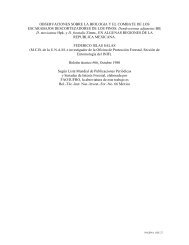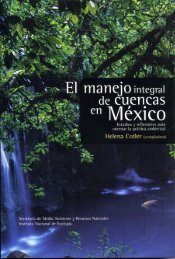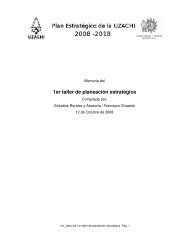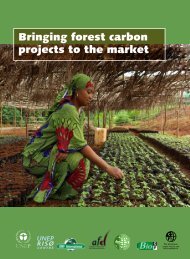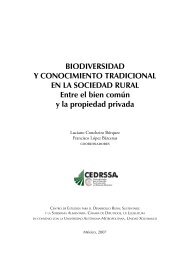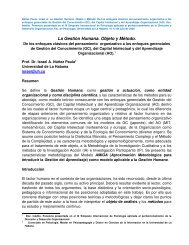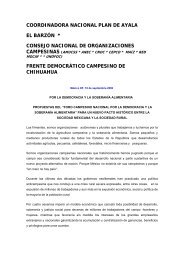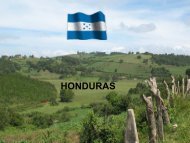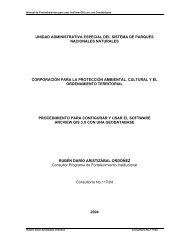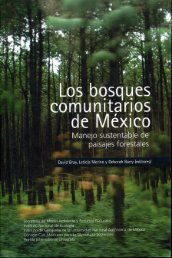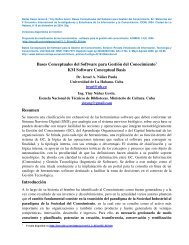STATE OF THE WORLD's INDIGENOUs PEOpLEs - CINU
STATE OF THE WORLD's INDIGENOUs PEOpLEs - CINU
STATE OF THE WORLD's INDIGENOUs PEOpLEs - CINU
- No tags were found...
Create successful ePaper yourself
Turn your PDF publications into a flip-book with our unique Google optimized e-Paper software.
EMBARGOED UNTIL 14 January 2010<strong>STATE</strong> <strong>OF</strong> <strong>THE</strong> WORLD’S INDIGENOUS PEOPLESNot for distributionresources and destroyed indigenous subsistence economies, replacing them with monoculture cash cropsfor export.SAPs require that States curtail expenditure on national health, education and social services in favour of higherand more rapid repayment of the national debt to the IMF/WB. The impact on indigenous peoples and the poorcan be seen in less access to education and social services and higher rates of illiteracy.Trade and import liberalization policies require that countries abrogate tariffs and other measures intendedto protect locally-produced food and commodities needed for domestic consumption in favour of increasedincentives for corporate agribusiness producing exports for the foreign market. This not only undermines foodsecurity but results in environmental degradation and the over-exploitation of forest and subsurface mineralresources.The hallmark of globalization is the privatization of government services and assets, which are replaced bycorporate monopolies in many sectors of the economy that are crucial to national security. These sectors includefood production, water allocation and health care delivery. Under the globalized model of development, thesecritical services are transferred to TNCs and G7 18 countries, which have reaped a huge windfall while indigenouspeoples have been displaced from their traditional territories and livelihoods.For an example of how globalization impacts negatively on indigenous peoples, their environment, lands, territoriesand resources.The impact of globalization in the PacificIn 2001, the World Council of Churches (WCC) undertook an inquiry into the impact of globalization in thePacific region and an assessment of alternatives to economic globalization. The outcome of this effortwas published by the WCC in a document entitled: “Island of Hope: A Pacific Alternative to EconomicGlobalization” (2001). The Council of Churches, in assessing the impact of globalization in the Pacific,examined impacts in several areas including social, political, ecological and economic impacts. Thefollowing are a few of the findings made by the Council and the Pacific churches:Social impacts: The Pacific churches found a marked increase in the number of families living below thepoverty line, largely linked to the liberal policies adopted by national governments, as well as worsening wagesand working conditions. As the study points out, “national economic policies aim for greater liberalizationand competition in the economy, ignoring their social and economic ramifications.” Economic globalizationhas exacerbated social problems in the Pacific, including substance and drug abuse and the spread of HIV/AIDS. The Pacific has also experienced an increased erosion of traditional lifestyles and values.Ecological impacts: The report describes an “intensive exploitation, rather than sustainable managementof the Pacific’s natural resources”, with calls for sustainable exploitation of resources from regional18The G-7 Countries are the world's major financial nations: Britain, Canada, France, Germany, Italy, Japan and the United States.230 | CHAPTER VII




